- Home
- Don DeLillo
The Names Page 4
The Names Read online
Page 4
Not Ras Shamrah. Not history, gods, tumbled walls, the scale poles and pumps of the excavators.
The alphabet itself. They were interested in letters, written symbols, fixed in sequence.
Tap washed pottery shards in pans of water, scrubbing them with a toothbrush. The more delicate pieces he cleaned with a small paintbrush, fine-bristled.
Kathryn and a male student worked a device called a rocking screen. The young man troweled dirt from a tall pile into a plastic bleach bottle with the upper section cut off. He spread this dirt onto a horizontal screen equipped with handles and held in position at elbow height by a bracketed wooden framework. Kathryn gripped the handles and rocked the dirt through the fine mesh, one hour, two hours, three hours.
I sat in the shade, watching.
At twilight she and l walked down through the village to one of the fishing boats tied up at the pier. A small crucifix was nailed to the door of the wheelhouse. We sat on deck and watched people eating dinner in the two restaurants. She knew the owner of the boat and his sons. One of the sons had worked at the excavation, helping to clear the site and then digging trenches. The other son was limited in the work he could do, having lost a hand to dynamite.
This second man stood about thirty yards away, beating an octopus against a rock. The small beach where he stood was littered with broken things and thick plastic sheeting. He held the octopus by the head and smashed its tentacles against the rock, over and over.
“I had an erotic fantasy last night while Owen was talking about those people.”
“Who was in it?” she said.
“You and I.”
“A man who has fantasies about his wife?”
“I’ve always been backward in these matters.”
“It must be the sun. The heat and sun are famous for generating this kind of thing.”
“It was nighttime,” I said.
We talked awhile about her nephews and nieces, other family matters, commonplaces, a cousin taking trumpet lessons, a death in Winnipeg. It seemed we could stray from Owen’s evening seminars. We could talk to each other behind his back, as it were, as long as we didn’t get too close to the basic state of things between us. The subject of family makes conversation almost tactile. I think of hands, food, hoisted children. There’s a close-up contact warmth in the names and images. Everydayness. She had one sister in England, two in western Canada, people in six provinces altogether, Sinclairs and Pattisons and their extensions in insulated houses with aluminum siding at the back and half a cord of wood stacked against the sides. This is life below the white line, the permafrost. People sitting in renovated kitchens, decent, sad, a little bitter in an undirected way. I felt I knew them. Bass fishermen. Presbyterians.
When children race out of rooms the noise of their leaving remains behind. When old people die, she’d once been told, they leave a smell on things.
“My father hated that hospital. He’d always feared doctors and hospitals. He never wanted to know what was wrong. All those tests, that whole year of tests, I began to think he would die of tests. He preferred not knowing. But once they put him in the hospital, he knew.”
“He needed a drink. He kept telling me. It became a complicated joke between us.”
“Many drinks.”
“I wish he could have gone to this subterranean place in Athens I sometimes go to with David Keller. When someone asks whether they have bourbon, the bartender says smugly, ‘Yes, of course, James Beam, very good.’ “
“James Beam. That is very good. He liked his bourbon.”
“He liked American things.”
“A common failing.”
“Despite the propaganda he kept hearing from one of his children.”
“Four years now, isn’t it?”
“Four years. And that incredible thing he said near the end. ‘I commute all sentences. Pass the word. The criminals are for given.’ Which I will never forget.”
“He could barely speak.”
“Deadpan. Absolutely deadpan to the end.”
This talk we were having about familiar things was itself ordinary and familiar. It seemed to yield up the mystery that is part of such things, the nameless way in which we sometimes feel our connections to the physical world. Being here. Everything is where it should be. Our senses are collecting at the primal edge. The woman’s arm trailing down a shroud, my wife, whatever her name. I felt I was in an early stage of teenage drunkenness, lightheaded, brilliantly happy and stupid, knowing the real meaning of every word. The deck gave off a dozen smells.
“Why is Tap writing about rural life during the Depression?”
“He talks to Owen. I think it’s interesting that he writes about real people instead of heroes and adventurers. Not that he doesn’t go overboard in other ways. Flamboyant prose, lurid emotions. He absolutely collides with the language. The spelling is atrocious.”
“He talks to Owen.”
“I gather these are episodes from Owen’s boyhood. People he knew and so on. I don’t think Owen even knows this stuff is being put on paper. It’s an interesting story, at least as it emerges from our son’s feverish imagination.”
“A nonfiction novel.”
A man finishing a peach tossed the pit into the sidecar of a motorcycle as it turned the corner where he happened to be standing. The timing was perfect, the toss deceptively casual. What rounded out the simple beauty of the thing was the fact that he did not look around to see who noticed.
“I hope we don’t become one of those couples who start getting along after they split up.”
“That may be better,” she said, “than not getting along at all.”
“I hope we don’t become one of those couples who can’t live together but can’t live apart.”
“You’re getting funny in your old age. People have commented.”
“Who?”
“No one.”
“We got along, didn’t we, in the important ways? Our attachment is deep.”
“No more marriage, ever, for this lady, to anyone.”
“It’s strange. I can talk about these things with other people. But not with you.”
“I’m the killer bitch, remember?”
Another man had joined the first, the boat owner’s son. They stood on the narrow gravel beach, in the light of the second restaurant, each beating an octopus against the rock, taking turns, working to a rhythm.
“What’s next?”
“Istanbul, Ankara, Beirut, Karachi.”
“What do you do on these trips?”
“Policy updates, we call them. In effect I review the political and economic situation of the country in question. We have a complex grading system. Prison statistics weighed against the number of foreign workers. How many young males unemployed. Have the generals’ salaries been doubled recently. What happens to dissidents. This year’s cotton crop or winter wheat yield. Payments made to the clergy. We have people we call control points. The control is always a national of the country in question. Together we analyze the figures in the light of recent events. What seems likely? Collapse, overthrow, nationalization? Maybe a balance of payments problem, maybe bodies hurled into ditches. Whatever endangers an investment.”
“Then you pay.”
“It’s interesting because it involves people, waves of people, people running in the streets.”
A donkey stood motionless in the back of a three-wheel pickup that was parked near the bakery. A man sat smoking at the wheel. Twin boys, teenagers, walked with their father along the harborfront. The man wore a suit and tie, his sons wore knitted V-neck sweaters. He walked between them and each boy held him by an arm. They walked in a measured stately way, beautiful to watch. The boys were closer to eighteen than thirteen. They were dark and somber and looked straight ahead.
Tap was at his desk, writing.
In the room I put things in my overnight bag, planning to be on the early boat to Naxos, on to Piraeus from there. I heard someone whistling outside
. A single birdlike note, repeated. I went out to the balcony. Two men played backgammon at a folding table set against the hotel wall. Owen Brademas stood under a tree across the street, looking up at me, arms crossed on his chest.
“I went up to the house.”
“They’re asleep,” I said.
“I thought you’d all be up there.”
“She’s up at five tomorrow. We both are.”
“It isn’t necessary for her to be at the site so damn early.”
“She has to heat water and make breakfast and do fourteen other things. She writes letters, she reads. Come on up.”
There were five or six other villages on the island. Owen lived just outside the southernmost of these in a concrete dwelling called the dig house. It was located about a mile from the excavation. His assistant and the remaining fieldworkers also lived there. People in the houses scattered along the route from this village to that one must have wondered at the night-riding man sitting tall and awkward on his motor scooter, passing between the barley fields, the bamboo windbreaks.
I used a towel to clean off the chair on the balcony and then I carried out a spindle chair with an upholstered seat. Intermittent wind came biting up off the water.
“Is this an imposition, James? Just say so.”
“It’ll be another hour or two before I’m ready to sleep. Sit down.”
“Do you sleep?”
“Not as well as I used to.”
“I don’t sleep,” he said.
“Kathryn sleeps. I used to sleep. Tap sleeps, of course.”
“It’s pleasant here. Our house isn’t well sited. It seems to catch and retain heat.”
“What is it you find on those stones, Owen, that’s so intriguing?”
He stretched his body, easing into an answer.
“At first, years ago, I think it was mainly a question of history and philology. The stones spoke. It was a form of conversation with ancient people. It was also riddle-solving to a certain degree. To decipher, to uncover secrets, to trace the geography of language in a sense. In my current infatuation I think I’ve abandoned scholarship and much of the interest I once had in earlier cultures. What the stones say, after all, is often routine stuff. Inventories, land sale contracts, grain payments, records of commodities, so many cows, so many sheep. I’m not an expert on the origin of writing but it seems to be the case that the first writing was motivated by a desire to keep accounts. Palace accounts, temple accounts. Bookkeeping.”
“And now?”
“Now I’ve begun to see a mysterious importance in the letters as such, the blocks of characters. The tablet at Ras Shamrah said nothing. It was inscribed with the alphabet itself. I find this is all I want to know about the people who lived there. The shapes of their letters and the material they used. Fire-hardened clay, dense black basalt, marble with a ferrous content. These things I lay my hands against, feel where the words have been cut. And the eye takes in those beautiful shapes. So strange and reawakening. It goes deeper than conversations, riddles.”
“Why do you call this an infatuation?”
“Well it just is, James. It’s an unreasoning passion. It’s extravagant, foolish, probably short-lived.”
All this with sweeping gestures, in open vocal rhythms. Then he laughed, although it may be more accurate to say he “laughed out,” as one cries out or calls out. So much that he said and did had a tone of trustful surrender to it. It was my guess that he lived with the consequences of self-discovery and I suspected this was a more exacting hardship than anything the world might have worked out for him.
“And these people in the hills. You’ll go back?”
“I don’t know. They talked about moving on.”
“There’s a practical element. What they eat, where they get it.”
“They steal,” he said. “Everything from olives to goats.”
“Did they tell you this?”
“I surmised.”
“Would you call them a cult?”
“They share an esoteric interest.”
“Or a sect?”
“You may have a point. I got the impression they’re part of a larger group but I don’t know if their ideas or customs are refinements of some wider body of thought.”
“What else?” I said.
Nothing. The moon was nearly full, lighting the edges of wind-driven clouds. The backgammon players rolled their ivory dice. The board was still there in the morning, set at the edge of the table, as I hurried toward the gray boat, low-riding in the calm, looking sad, half sunken. I prepared to work through the Greek lettering on the bow in my laborious preschool way but it was an easy name this time, after the island. Kouros. It was Tap who’d told me the name of the island derived from a colossal statue found toppled near an ancient gravesite about a hundred years ago. It was a traditional kouros, a sturdy young man with braided hair who stood with his arms close to his nude body, his left foot forward, an archaic smile on his face. Seventh century B.C. He’d learned this from Owen, of course.
3
Awake. The pulsing cry of doves. I have to concentrate to form a sense of whereabouts. Up, into the world, crank the shutters open. The beekeeper in the garden of the British School marches in his hooded bonnet to the box hives. I take the coffee mug from the drain basket, set the water boiling. Mount Hymettus is a white shadow, summer mornings, a vaporous reach to the gulf. Today’s a market day, a man is chasing peaches down the steep street below the terrace restaurants. A pickup has hit his, knocking a bushel off the end, and the peaches come down the asphalt surface in wobbling rows. The man is trying to head them off, running low to the ground and making sweeping motions with his arm. A boy stands under the mulberry trees, hosing down the floor of the restaurants. Where the pickups have met, a vast gesturing goes on between the driver of one vehicle and a friend of the stooped and running man. An envelope of Nescafé, a leftover donut. The phone is ringing, the first of the day’s wrong numbers. Doves lighting on the still tips of cypresses. The men from the café around the corner come into view, watching the peaches roll. They lean into the street with care, evaluating gravely, prepared to extend only so much in effort and gesture. Honeybees rise clustered in the dusty light.
I walk to the office, where I make myself another cup of coffee and wait for the telex to address me.
Marriage is something we make from available materials. In this sense it’s improvised, it’s almost offhand. Maybe this is why we know so little about it. It’s too inspired and quicksilver a thing to be clearly understood. Two people make a blur.
Charles Maitland and I discussed this, sitting on a bench in the National Gardens, where it was fifteen degrees cooler than in the bright city around us. Kids walked by, eating rings of sesame bread.
“You’re talking about modern marriage. Americans.”
“Kathryn is Canadian.”
“New World then.”
“I think you’re out of touch.”
“Of course I’m out of touch. And a good thing too. Spare me from being in touch. The point is that the thing you describe has nothing to do with wedlock.”
He produced the word like a gold coin between his teeth. Handsome battered face. Burst capillaries, streaked blue eyes. He was fifty-eight, a half shambles, broad, ruddy, silver-browed, racked by fits of coughing. Sundays he drove alone to a field outside the city and flew his radio-controlled model plane. It weighed nine pounds and cost two thousand dollars.
“True,” I said. “Wedlock was the last thing Kathryn and I thought we’d entered. We hadn’t entered a state at all. If anything, we’d broken out of states and nations and firm designs. She used to say this marriage is a movie. She didn’t mean it wasn’t real. The whole thing flickered. It was a series of small flickering moments. But at the same time calm and safe. A day-to-day life. Restrained, moderate. I thought if you didn’t want anything, your marriage was bound to work. I thought the trouble was that everyone wanted. They wanted in different directions. T
ap, coming along, reinforced the feeling that we were making it up day by day, little by little, but sanely, contentedly, with no huge self-seeking visions.”
“I’m thirsty,” he said.
“A drink would kill you.”
“It flickered. It was a series of flickers. You were calm and safe.”
“We had incredible fights.”
“When the old girl gets here, we’re going for a drink.”
“I’m having lunch with Rowser. Come along.”
“Christ, no. Christ, not him.”
“Be a sport,” I said.
Shaded paths. Watercourses and stone fountains. A dense green place with towering trees that provided a fan vaulting, a cover against the enlarged-heart panics of central Athens. The landscape had a pleasing randomness. It was an enticement to wander foolishly, to get lost without feeling you were part of a formalist puzzle, a garden of hedge traps and designed escapes. A dozen men talked politics under a pine tree. Intermittently Charles listened, translating for me. He and Ann had been married twenty-nine years (she was seven or eight years younger than he was). In that time he’d held various jobs involving the security of overseas branches of British and American corporations. He now worked on a consulting basis, advising mainly on fire safety, something of a drop in status and income, considering the living to be made in terror.
They’d lived in Egypt, Nigeria, Panama, Turkey, Cyprus, East Africa, the Sudan and Lebanon. These stays were anywhere from one year to four. They’d lived elsewhere, including the States, for shorter periods, and they’d been through a number of things, from house arrest and deportation, Cairo ‘56, to heavy shelling and infectious hepatitis, Beirut ‘76. Ann talked about these episodes in a tone of remote sadness, as if they were things she’d heard about or read in the newspaper. Maybe she felt unqualified to share the emotions of the native-born. The Lebanese were the victims, Beirut was the tragedy, the world was the loser. She never mentioned what they themselves had lost in any of the places they’d lived. It was Charles, finally, who told me that everything in their small home in Cyprus had been stolen or destroyed when the Turks rolled over the countryside and he implied this was only one of several ruinous events. They’d seemed, the troops, to have a deep need to pull things out of walls, whatever was jutting-pipes, taps, valves, switches. The walls themselves they’d smeared with shit.

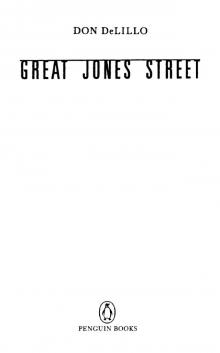 Great Jones Street (Contemporary American Fiction)
Great Jones Street (Contemporary American Fiction)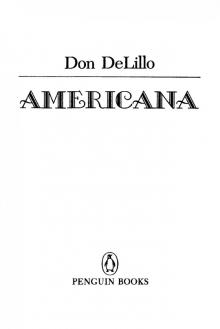 Americana
Americana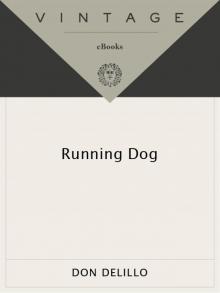 Running Dog
Running Dog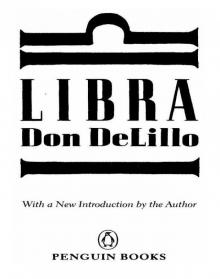 Libra
Libra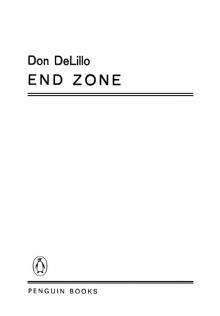 End Zone
End Zone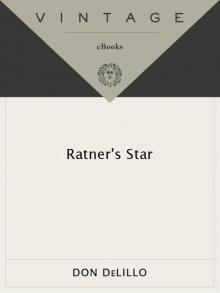 Ratner's Star
Ratner's Star Underworld
Underworld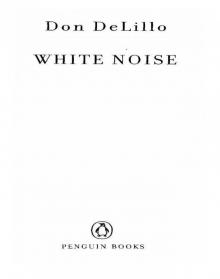 White Noise
White Noise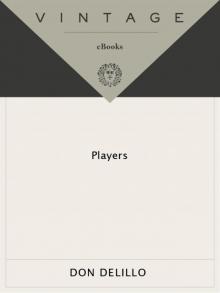 Players
Players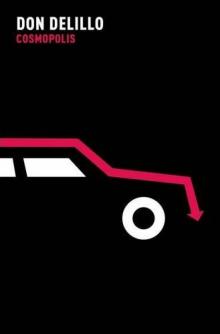 Cosmopolis
Cosmopolis The Silence
The Silence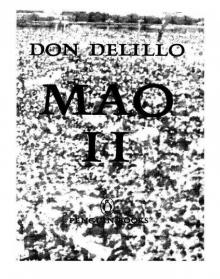 Mao II
Mao II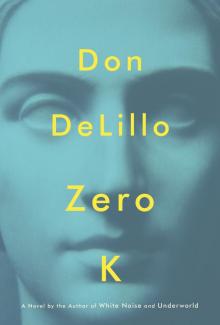 Zero K
Zero K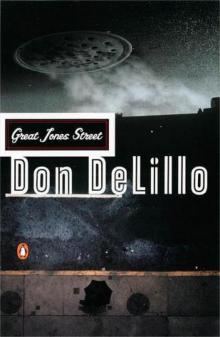 Great Jones Street
Great Jones Street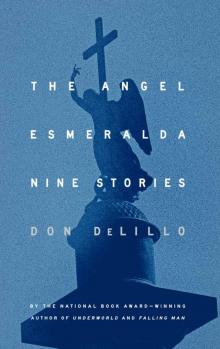 The Angel Esmeralda
The Angel Esmeralda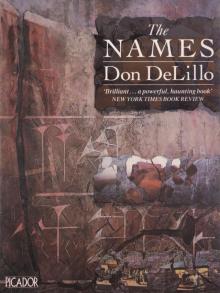 The Names
The Names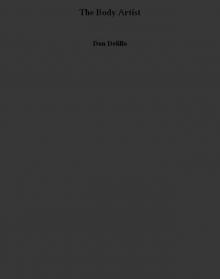 The Body Artist
The Body Artist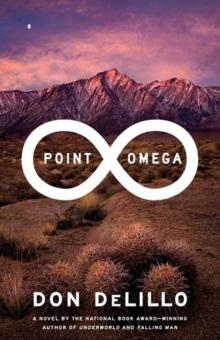 Point Omega
Point Omega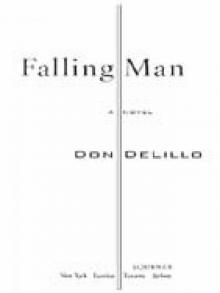 Falling Man
Falling Man